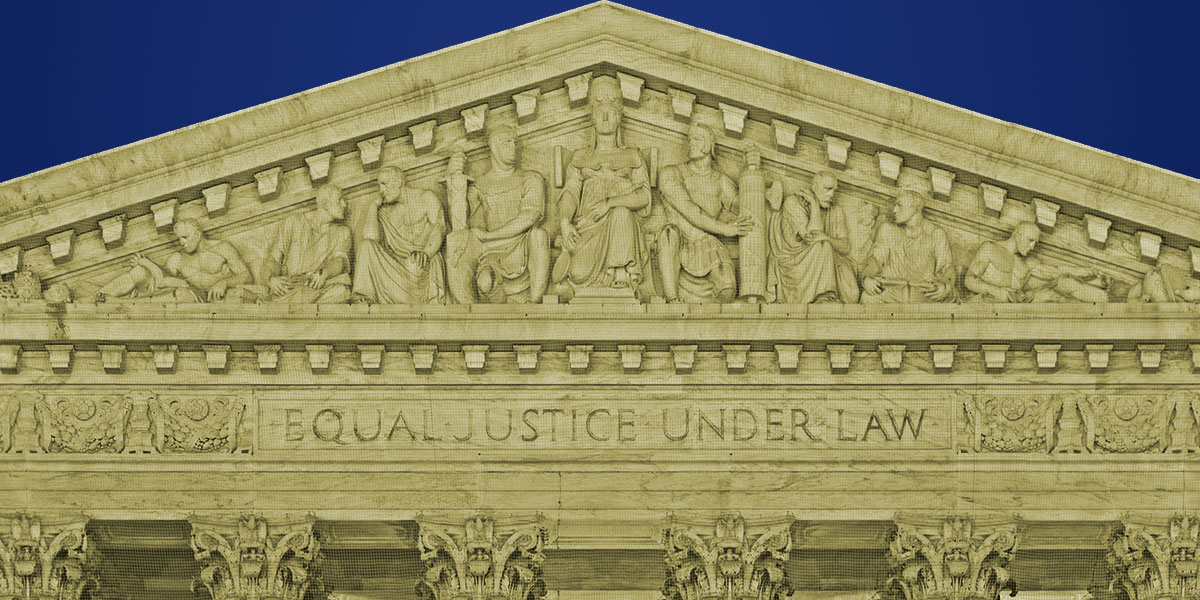
www.eff.org
Today's Supreme Court Decision on Age Verification Tramples Free Speech and Undermines Privacy
Today’s decision in Free Speech Coalition v. Paxton is a direct blow to the free speech rights of adults. The Court ruled that “no person—adult or child—has a First Amendment right to access speech that is obscene to minors without first submitting proof of age.” This ruling allows states to enact onerous age-verification rules that will block adults from accessing lawful speech, curtail their ability to be anonymous, and jeopardize their data security and privacy. These are real and immense burdens on adults, and the Court was wrong to ignore them in upholding Texas’ law.
Importantly, the Court's reasoning applies only to age-verification rules for certain sexual material, and not to age limits in general. We will continue to fight against age restrictions on online access more broadly, such as on social media and specific online features.
Still, the decision has immense consequences for internet users in Texas and in other states that have enacted similar laws. The Texas law forces adults to submit personal information over the internet to access entire websites that hold some amount of sexual material, not just pages or portions of sites that contain specific sexual materials. Many sites that cannot reasonably implement age verification measures for reasons such as cost or technical requirements will likely block users living in Texas and other states with similar laws wholesale.
Importantly, the Court's reasoning applies only to age-verification rules for certain sexual material, and not to age limits in general.
Many users will not be comfortable sharing private information to access sites that do implement age verification, for reasons of privacy or concern for data breaches. Many others do not have a driver’s license or photo ID to complete the age verification process. This decision will, ultimately, deter adult users from speaking and accessing lawful content, and will endanger the privacy of those who choose to go forward with verification.
What the Court Said Today
In the 6-3 decision, the Court ruled that Texas’ HB 1181 is constitutional. This law requires websites that Texas decides are composed of “one-third” or more of “sexual material harmful to minors” to confirm the age of users by collecting age-verifying personal information from all visitors—even to access the other two-thirds of material that is not adult content.
In 1997, the Supreme Court struck down a federal online age-verification law in Reno v. American Civil Liberties Union. In that case the court ruled that many elements of the Communications Decency Act violated the First Amendment, including part of the law making it a crime for anyone to engage in online speech that is "indecent" or "patently offensive" if the speech could be viewed by a minor. Like HB 1181, that law would have resulted in many users being unable to view constitutionally protected speech, as many websites would have had to implement age verification, while others would have been forced to shut down.
In Reno and in subsequent cases, the Supreme Court ruled that laws that burden adults’ access to lawful speech are subjected to the highest level of review under the First Amendment, known as strict scrutiny. This level of scrutiny requires a law to be very narrowly tailored or the least speech-restrictive means available to the government.
That all changed with the Supreme Court’s decision today.
The Court now says that laws that burden adults’ access to sexual materials that are obscene to minors are subject to less-searching First Amendment review, known as intermediate scrutiny. And under that lower standard, the Texas law does not violate the First Amendment. The Court did not have to respond to arguments that there are less speech-restrictive ways of reaching the same goal—for example, encouraging parents to install content-filtering software on their children’s devices.
The court reached this decision by incorrectly assuming that online age verification is functionally equivalent to flashing an ID at a brick-and-mortar store. As we explained in our amicus brief, this ignores the many ways in which verifying age online is significantly more burdensome and invasive than doing so in person. As we and many others have previously explained, unlike with in-person age-checks, the only viable way for a website to comply with an age verification requirement is to require all users to upload and submit—not just momentarily display—a data-rich government-issued ID or other document with personal identifying information.
This leads to a host of serious anonymity, privacy, and security concerns—all of which the majority failed to address. A person who submits identifying information online can never be sure if websites will keep that information or how that information might be used or disclosed. This leaves users highly vulnerable to data breaches and other security harms. Age verification also undermines anonymous internet browsing, even though courts have consistently ruled that anonymity is an aspect of the freedom of speech protected by the First Amendment.
This Supreme Court broke a fundamental agreement between internet users and the state that has existed since its inception
The Court sidestepped its previous online age verification decisions by claiming the internet has changed too much to follow the precedent from Reno that requires these laws to survive strict scrutiny. Writing for the minority, Justice Kagan disagreed with the premise that the internet has changed: “the majority’s claim—again mistaken—that the internet has changed too much to follow our precedents’ lead.”
But the majority argues that past precedent does not account for the dramatic expansion of the internet since the 1990s, which has led to easier and greater internet access and larger amounts of content available to teens online. The majority’s opinion entirely fails to address the obvious corollary: the internet’s expansion also has benefited adults. Age verification requirements now affect exponentially more adults than they did in the 1990s and burden vastly more constitutionally protected online speech. The majority's argument actually demonstrates that the burdens on adult speech have grown dramatically larger because of technological changes, yet the Court bizarrely interprets this expansion as justification for weaker constitutional protection.
What It Means Going Forward
This Supreme Court broke a fundamental agreement between internet users and the state that has existed since its inception: the government will not stand in the way of people accessing First Amendment-protected material. There is no question that multiple states will now introduce similar laws to Texas. Two dozen already have, though they are not all in effect. At least three of those states have no limit on the percentage of material required before the law applies—a sweeping restriction on every site that contains any material that the state believes the law includes. These laws will force U.S.-based adult websites to implement age-verification or block users in those states, as many have in the past when similar laws were in effect.
Rather than submit to verification, research has found that people will choose a variety of other paths: using VPNs to indicate that they are outside of the state, accessing similar sites that don’t comply with the law, often because the site is operating in a different country. While many users will simply not access the content as a result, others may accept the risk, at their peril.
We expect some states to push the envelope in terms of what content they consider “harmful to minors,” and to expand the type of websites that are covered by these laws, either through updated language or threats of litigation. Even if these attacks are struck down, operators of sites that involve sexual content of any type may be under threat, especially if that information is politically divisive. We worry that the point of some of these laws will be to deter queer folks and others from accessing lawful speech and finding community online by requiring them to identify themselves. We will continue to fight to protect against the disclosure of this critical information and for people to maintain their anonymity.
EFF Will Continue to Fight for All Users’ Free Expression and Privacy
That said, the ruling does not give states or Congress the green light to impose age-verification regulations on the broader internet. The majority’s decision rests on the fact that minors do not have a First Amendment right to access sexual material that would be obscene. In short, adults have a First Amendment right to access those sexual materials, while minors do not. Although it was wrong, the majority’s opinion ruled that because Texas is blocking minors from speech they have no constitutional right to access, the age-verification requirement only incidentally burdens adult’s First Amendment rights.
But the same rationale does not apply to general-audience sites and services, including social media. Minors and adults have coextensive rights to both speak and access the speech of other users on these sites because the vast majority of the speech is not sexual materials that would be obscene to minors. Lawmakers should be careful not to interpret this ruling to mean that broader restrictions on minors’ First Amendment rights, like those included in the Kids Online Safety Act, would be deemed constitutional.
Free Speech Coalition v. Paxton will have an effect on nearly every U.S. adult internet user for the foreseeable future. It marks a worrying shift in the ways that governments can restrict access to speech online. But that only means we must work harder than ever to protect privacy, security, and free speech as central tenets of the internet.

















